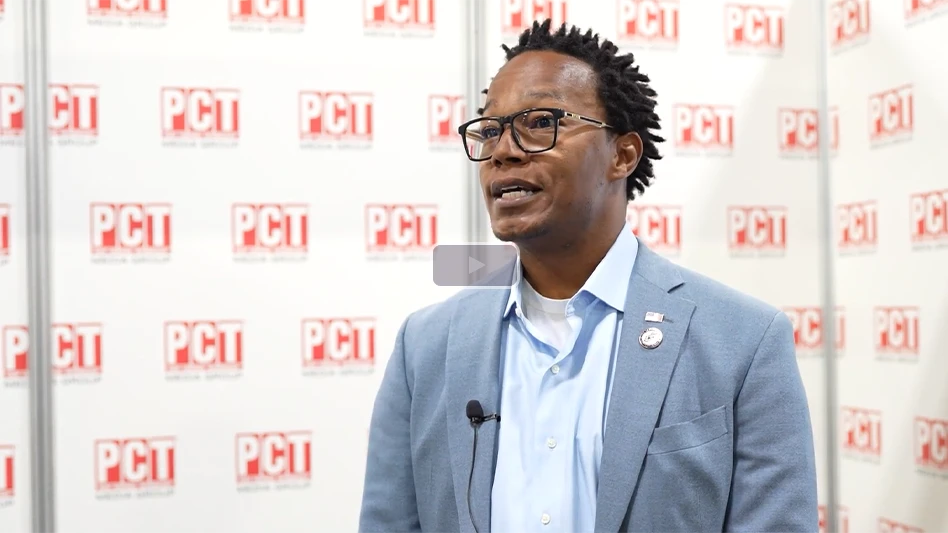On the surface, all appeared to be calm. The "Great Recession" had put the brakes on mergers and acquisitions activity for much of the U.S. economy, including the pest management industry, as Americans hunkered down to survive the worst economic crisis in several generations. But just below the surface, M&A activity was heating up as the United States began to gradually emerge from its economic doldrums. Some businesses began gaining confidence and positioning themselves for future growth, while others considered their strategic options, including plans to sell.
For the pest management industry, this "under-the-radar" activity bubbled over at the distributor level after two high-profile acquisitions occurred within four days of each other. Suddenly, the pest control landscape was re-shaped significantly, with some longtime industry observers predicting addition-al changes are on the horizon. One thing is certain: The "Great Recession" continues to resonate throughout the economy. But what’s next is anybody’s guess.
All systems go. While rumors of consolidation at the distributor level have persisted for many years amidst declining margins and a static customer base, nothing much happened until late April when Target Specialty Products, Santa Fe Springs, Calif., announced plans to enter into a joint venture with B&G Chemicals & Equipment Co., Dallas (see related story, pg. 25).
Target, a wholesale distributor of specialty chemicals and equipment with deep roots in the pest management industry, has served the western United States since 1969. B&G is a distributor of professional pest management products that was founded by industry icon Clayton Wright in 1950. The principals of the two companies — Lon Records and Tom Wright (son of the founder) — have had a long, mutually respectful relationship. In fact, Wright considers Records a "mentor."
As the economy soured, rumors of B&G being on the market heated up, according to one industry observer familiar with the two companies, and "Tom and Lon have been friends for a long time, so it was logical they would join forces."
Wright, president of B&G since 1991, will serve as regional manager and the company will operate under the name B&G-Target in the Texas region. "Clayton (who passed away a decade ago) was always very positive about the relationship between B&G and Target," Records recalls. "Clayton knew there was synergy between the two companies."
The joint venture will "make Target a complete player (in B&G’s market) in size and capabilities," Wright said. "This is a great opportunity for B&G to partner with one of our best allies and friends in the specialty distribution business."
"Additional capital and the expanded product line of Target could help B&G better serve its customers," according to Cisse Spragins, president, Rockwell Labs Ltd. In addition, the reduction in overhead costs resulting from the merger could benefit the company long-term, helping "B&G focus more on customers and sales."
While welcoming the news, PMPs in the region didn’t think the merger would have much of an impact on their business. "Competition is always good for the consumer," observed Darren Lowe, general manager, Metro Guard Termite & Pest Control, Ft. Worth, Texas. "You always want to have competition…and there’s still ample competition in the market including Univar, Estes, John Deere and B&G in their new form."
Danny Myers, owners of Myers Pest & Termite Services, Bedford, Texas, agrees. "I think it will be good because there are too many distributors in our market," he said. "It’s too fragmented."
*****
Target, B&G Join Forces
Like virtually every other business, specialty chemical distributors have not been immune to the challenges of the current economy.
On April 26, Target Specialty Products, Santa Fe Springs, Calif., and B&G Chemicals & Equipment Co., Dallas, Texas — two longtime industry product suppliers — announced a joint venture. The deal had been in the works just a couple of months, although the firms have been closely aligned with one another for decades.
B&G President Tom Wright will continue directing B&G operations as regional manager for the newly merged company.
Wright told PCT "it was getting harder and harder to be a dual line, multiple-branch distributor. This was an opportunity to add more lines, to work with people that care for their customers and to add more value."
B&G sells mosquito and pest control products while Target sells a much broader line of specialty agricultural products, fertilizers and application equipment, as well as products for the pest management industry. That Target sells a broader range of specialty chemicals perhaps has helped it weather recent economic challenges.
"It’s difficult just being in one or two markets in the specialty agricultural chemical industry. It’s kind of like being in production agriculture and being reliant on one crop," Target President Lon Records told PCT. "You can’t just be reliant on corn or wheat or citrus or strawberries. Farmers are diversified and successful distribution tends to be diversified also."
In addition to the fact that B&G offers primarily a pest centric-product line, the geographical areas that B&G services were hit hard by bad weather last year. (B&G distributes to Texas, Arizona, California, Oklahoma, New Mexico, Kansas, Arkansas and Louisiana.) "In addition to the 2008 financial crisis, in 2009 there was a horrendous drought and it’s just been hard on our customers," Wright said. "Their customers weren’t paying them, they’re having people cancel and in many of those areas there wasn’t any insect pressure."
Target, which services California, Arizona, Nevada, Oregon and Washington, when combined with B&G, will have 14 branch locations (with warehouses) and roughly 175 employees.
"There are no egos involved here and both of us are just trying to make a good, clean transition that is successful for the customers and employees and supply partners," Wright said.
*****
STUNNING NEWS. Just four days after Target announced its joint venture with B&G, the industry’s largest distributor — Univar USA — revealed it had purchased Southern Mill Creek Products (SMCP), a surprise to many in the industry. However, the SMCP acquisition had been in the works for some time, beginning with a phone call by John Bolanos, vice president, Professional Products & Services, to Sam Hartwell of Austin Capital Partners in July 2009. Austin Capital is the private equity firm that purchased SMCP and its 12 sales outlets in nine states in 2005.
"It was an endeavor that took a little longer than we originally had anticipated," Bolanos said. "We wanted to close the deal at the end of the year, but it’s like having a baby, you don’t necessarily get to pick the exact date it’s going to happen."
Bolanos said Southern Mill Creek Products was attractive to Univar for several reasons. First, "we’ve always been impressed with the extent of their customer loyalty," he said, "and customer loyalty is something we take very seriously." In addition, they have a highly regarded sales staff that made the company "tough competitors," according to Bolanos.
"The other thing we found attractive is their service centers, for the most part, are in locations where we have holes in our distribution network. While there is some overlap, their locations fill in nicely where we aren’t as well represented," he said. "So, their customer base and history of customer loyalty, as well as their locations and geographic reach, were what was most attractive to us."
For the time being, Univar doesn’t anticipate any major changes in the day-to-day operation of Southern Mill Creek Products. Customers and vendors should plan on conducting "business as usual," according to Univar.
While representatives of Austin Capital Partners will no longer be involved in the business, the staff of SMCP — including Doug Ashbridge and Carl Hinderer — "will continue to play an important role in the organization," according to Bolanos. Ashbridge, former president of SMCP, will serve as business development manager, reporting directly to Jim Delaney, Univar Northeast District Manager, as well as Bolanos.
WHY NOW? Every year, rumors of impending consolidation at the distributor level made the rounds. Yet despite the rumors, nothing happened. So what changed in 2010? Bolanos said the reason distribution is under so much "pressure" is twofold. "It’s a combination of (1) the general devaluation of the market as a result of generic pressure in the marketplace and (2) the long-term financial impact of a down economy on the entire industry," he said. "Those factors are helping to create opportunity for some and difficulties for others."
Cisse Spragins, a member of the board of directors for UPF&DA, an industry trade group representing numerous distributors, agrees. "A significant number of dollars have left the supply chain due to the ‘perfect storm’ of the lower cost of post-patent products and the contraction of the new construction market which directly affected the termiticide sector," she said. In addition, the general lack of new patented products "has caused an overall decrease in products on agency agreements with distributors, which has cut into the profit dollars coming into distribution."
"You’ve got a lot of things going on right now that may be prompting this increased M&A activity," added Gary Curl, president of Specialty Products Consultants, Menham, N.J. "For each company — whether a distributor or a pest control firm — it’s going to be slightly different.
"I suspect we’re going to see an increase in M&A activity not only in our industry, but with small business in general. If you just look at what’s happening in our industry, you can see why the market for mergers and acquisitions may be heating up," he said. "First, the pest control industry has been in a downturn for about four years for a variety of reasons (i.e., poor termite seasons, weak housing market, etc.). For many PMPs this is the first time in their careers where they’ve seen a consistent downturn in their business."
Curl added, "Without getting too political, another thing that may be playing into this trend is the changes that are occurring in Washington. The tax cuts that are going to expire at the end of this year will result in an increase in the capital gains tax from 15 to 20 percent. That may cause many business people to accelerate their decision to sell some of their assets.
"There are very real concerns being expressed about the impact of decisions being made in Washington on small business," he said. "Some of the current administration’s new policies are causing uncertainty among small businesses," particularly as it relates to the impact of the health care bill and increased regulatory oversight. "Combine those concerns with a down economy and an increase in the capital gains tax on aging entrepreneurs and you can see why some people may be considering an exit strategy," he said.
WHAT’S AHEAD? Despite the pressures at the distributor level, Curl said he’s not comfortable guessing whether or not more consolidation is forthcoming. "I honestly don’t know whether there will be more consolidation at the distributor level or not," he said. "I’m not too keen on speculating."
Some think consolidation could have a positive effect on distribution, particularly for some of the smaller companies serving the industry. "I suspect some of the smaller independent distributors might say, ‘Hey this might be an opportunity,’" says Pat Callahan, national sales manager, LG Life Sciences. "Those guys could see consolidation among the larger distributors as an opportunity to capture the PCOs who want to buy from a small distributor. Their business could grow," a sentiment shared by Andy Linares, president of Bug Off Pest Control, New York, N.Y. "Time will tell, but I can see us getting a wider customer base as a result of this (consolidation)," he said. "As long as I can continue to offer special touches, things my customers can’t get elsewhere — and as long as I continue to be supported by manufacturers — then I will still thrive."
Also, many in the pest control industry wonder if the recent distributor consolidation opens the door for new (and potentially bigger) players, such as Helena Chemical Company, to enter the marketplace. The Collierville, Tenn.-based company is an established distributor of specialty products for several related markets that began distributing pest control products earlier this year. Although Helena has taken a calculated approach to the pest control market (see related story, pg. 32), it is a $3 billion-plus firm and a subsidiary of Marubeni, one of the largest general trading companies in Japan, so it has available financial resources.
THE BIGGER PICTURE. While rumors of additional M&A activity among distributors persist, at the pest control company level there is a relative calm on the M&A front … for now.
"I definitely think there are going to be continued acquisitions at the pest control company level," predicted Gary Curl, who conducts an annual study of the pest management industry. "It’s difficult to build a pest control business organically anymore," he said. "You can only service so many accounts per vehicle per day and you can only travel so far away from an office before your ‘windshield time’ becomes too costly. And when a company gets to a size where they can’t grow organically any more, they begin to look at acquisitions.
"When the housing market was going gangbusters in 2003 to 2006, pest control companies would be approached about selling their business and they would say they weren’t interested. Today, those same companies are coming back and asking their suitors if they’re still interested and would like to talk now. That’s how much times have changed."
Residex Owner and CEO Chris Donaghy believes consolidation at the pest control company level will continue, especially with small to mid-size companies which, he says, "tend to sell during bad economic times because they are not diverse enough in their customer reach and many depend on the phone to ring for new business." Donaghy also noted that larger PMPs are better positioned because they can shed top line expense loads during tough times and "there service offerings are diverse enough, along with renewable income streams, to keep them healthy until better times return."
While it remains to be seen if consolidation at the pest control company level will ramp up or continue at its current modest pace, most believe continued consolidation is inevitable. And whether it’s via pest control companies or distributors, the hope remains that maybe — just maybe — this M&A activity is a sign of economic recovery.
The authors are Internet editor, editor and publisher of PCT magazine.
*****
Do moves open the door for Helena?
Consolidation by its very nature changes the landscape of any industry, which is why recent distributor consolidation has many wondering if other distributors not historically associated with the pest control industry will seize an opportunity to enter the market.
In reporting this month’s cover story, PCT interviewed many individuals within the pest control industry and the distributor most often mentioned as the next potential major player is Helena Chemical Company. Headquartered in suburban Memphis, Helena is a $3 billion-plus business (the majority of profits from the agriculture side) with a specialty products division that serves the golf, lawn care (turf & ornamental), aquatics, forestry and industrial markets. It is a subsidiary of Marubeni, a large Japanese trading company.
The company has been considering entering the pest control market for several years. Two years ago, Helena brought in David Carson, a longtime executive with distributor Estes, to further explore this option. In 2009, Helena began making the necessary preparations to enter the market, and the company began placing inventory this year, officially signaling its entry into the pest control market.
Carson told PCT that the driving force behind Helena’s decision to enter the pest control market was customer demand – especially from customers that offer both lawn and pest control. "They were asking us if we could (offer them) pest control products. More than anything else it has been a customer-driven decision," Carson said. "We already have the infrastructure in place. Pest control offers us another opportunity to utilize that infrastructure to grow the business."
Helena is not presently offering pest control products at all locations, said Carson, who noted, "Our first focus was Florida, then California/Nevada, and now it has expanded to the Mississippi Delta region, and parts of the Midwest (Kansas City), Texas and Northeast. Essentially, any place where customers were asking for these products."
Also evolving is the variety of products Helena offers. "We have access to all of the large basics and a few smaller ones as well," he said. "We don’t have many of the mid-size and smaller companies."
Helena is entering the market humbly, Carson says, and seeking to make its mark by providing standout customer service. "We’re not entering the market with the idea that we are going to be ‘the big kid on the block,’" he said. "We didn’t want to enter this market and try to be ‘everything to everyone.’ There are a lot of good distributors already in this market – people and companies I have a great deal of respect for. We realize it’s going to take time and a significant amount of effort to get to the place we want to be."
What remains to be seen are Helena’s long-term goals. Several industry insiders interviewed by PCT believe that the only way for an outside distributor to become the next major player in the pest control market is by acquiring other companies. With an established presence in related markets, an existing infrastructure in place and available financial resources Helena would appear well-positioned to make a move. – Brad Harbison

Explore the June 2010 Issue
Check out more from this issue and find your next story to read.
Latest from Pest Control Technology
- Webinar: ActiveGuard Will Positively Impact Your Bottom Line
- MGK Announces EPA Registration of Botanical Active Ingredient Veratrine
- Termite Control Sales Strategies
- NPMA Announces ELP Class of 2025
- Termite Control Tools and Equipment for PMPs
- Choe Reviews Drywood Termite Geographical Hotspots, Latest Research Findings
- Mosquito Squad Announces Rebranding to Mosquito Squad Plus
- Pest Control Equipment: If it’s Critical, Back it Up!





